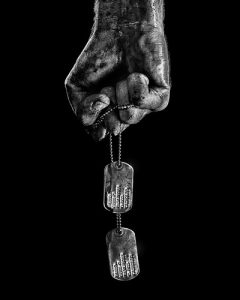Recently, physical fitness standards have dropped significantly in schools and colleges. Students are no longer required to meet specific standards or adhere to generally accepted standards of strength. At the same time, martial arts are becoming more popular in schools as they provide more flexible ways to improve one’s strength in body and mind. This is how schools implement karate, judo, and other martial arts into the academic process.
The Evolution of Physical Education in Schools
Although many schools follow a general academic curriculum, some flexibility in practicing martial arts and gymnastics remains available. Each school has the right to implement kung fu, aikido, Jiu-Jitsu, and other styles as part of physical training. Teachers adapt many fighting styles to keep students fit and improve their mental qualities. If martial arts were previously a way to enter the world of sports, now they are more aimed at polishing students’ physical and mental attributes.
These sports offer self-defense opportunities and promote physical health, mental discipline, and emotional well-being. For students, these options mean the chance to completely change their lives and adapt to different challenges. Writing services provide similar benefits because they show how to create polished assignments. But not all companies can be trusted. So, read the honest 99papers review on LinkedIn. Think of this approach as the first form of self-discipline, similar to practicing martial arts.
Benefits of Self-Defense and Physical Fitness Programs
Implementing self-defense and physical exercises in schools has a variety of positive influences. Not only do they contribute to the general development of students, but they also improve physical health, boost confidence, and impose discipline. Here are the other major benefits.
Overall Health Improvement
Martial arts and physical education classes are important to students’ health. Routine sessions decrease the risk of cardiovascular disease and enhance the ability to reach maximum strength and flexibility while keeping weight in check. On the physical side, these programs lead to amelioration of mental health, too, as they can lower stress, anxiety, and depression levels.
When you’re just starting in martial arts, your body may need more time to recover. At such moments, sleeping longer after studying in class is better. Delegate some papers, and you can adapt to new challenges faster. But who can you trust with such a mission? Is 99papers safe? Read more reviews and find the most reliable company.
Combating Childhood Obesity
Childhood obesity is a global health issue. In schools, martial arts and physical fitness programs can provide an alternative to the prevailing ways of addressing peer bullying. These exercises help the children accumulate the activity in regular exercise, which is critical for burning calories and fat. Unlike the usual games, martial arts work for the participants’ great variety of physical abilities, inviting everyone to participate in this activity.
The discipline required in martial arts training also ensures students have a better diet and make good choices. Through such programs that provide enjoyable exercise, the problem of a sedentary lifestyle can be combated, which is an important cause of obesity. Consistent attendance helps those students create a habit of doing physical activity, which is a basis for a healthier future.
Boosting Self-Esteem and Decision Making Skills
Participating in martial arts and fitness activities greatly influences students’ attitudes and choices. Martial arts provide students a way to make their goals and accomplish them, thus enhancing their sense of confidence. They begin to have respect for themselves and others. Consequently, they develop a sense of self-worth. One skill honed through martial arts is the discipline required during training.
This same skill enhances decision-making. Pupils experience life situations more realistically, learn to decide quickly, and face the outcomes of their decisions. The same happened in a safe environment, but now the cadets are ready to face reality. Through developing self-esteem and decision-making skills, martial arts and fitness programs allow students to face any challenges they may encounter more effectively.
Enhancing Social Skills and Teamwork
Martial arts and physical classes in schools have a huge impact on students’ social skills and teamwork. These tasks require students to be team players by teaching each other, learning from one another, and working towards a common goal. Through drills, sparring, and group work, students are taught to be open, empathetic, and respectful peers.
They realize the importance of teamwork and discover that one can achieve more with many people. Thus, students can establish relationships and a feeling of community. Martial arts and fitness programs help shape a more tolerant and inclusive school by developing social skills and building teamwork.
Stress Relief and Emotional Well-being
Joining martial arts and fitness exercises helps relieve stress and improve emotional health. The strenuous nature of such activities releases endorphins, which are the body’s natural mood-enhancing chemicals. They trigger a state of relaxation, thus lowering anxiety levels. Additionally, the practice of martial arts demands students’ attention and concentration.
As a result, students can disconnect from their daily stress and center themselves.
Techniques like focused breathing and mindfulness, which provide an escape from overwhelming situations in martial arts, can be incorporated into daily life to control anxiety and handle stress effectively.






